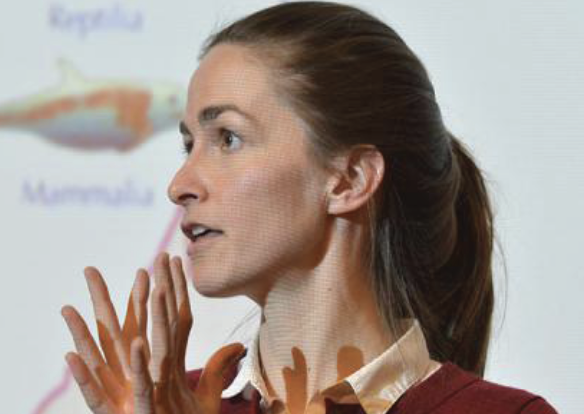
Early in 17th century rural England lived a young boy who had lost his mother when he was just eight years old. The school day was a bore, for his real passion lied in the time he spent watching the birds in his backyard for hours on end. As a young adult, he dropped out of medical school and sailed to the Galapagos Islands. His findings, the theory of evolution by natural selection, formed the bedrock of modern biology. That young boy’s name was Charles Darwin, and he was born on February 12, 1809, just over 212 years ago.
Now, for the third year in a row, February 12 has been declared Darwin Day by Connecticut Governor Ned Lamont. This year, the Humanists and Freethinkers of Fairfield County (HFFCCT) and Southern Connecticut Darwin Day Committee co-hosted a virtual celebration featuring a presentation by Yale scientist Dr. Pincelli Hull. Lieutenant Governor Susan Bysieicz, Senator Richard Blumenthal, and Congressman Jim Himes were all in attendance.
On February 11, Governor Lamont officially proclaimed February 12, 2022 to be Darwin Day. In his statement, he emphasized that “Charles Darwin developed the groundbreaking theory of evolution” thus exemplifying “curiosity and ingenuity” as well as bringing “clarity” and “the promise of progress” to human society. The Governor’s declaration concluded by praising Connecticut’s “commitment to scientific research.”
Although Darwin Day has only been officially declared by the Governor over the last three years, the Southern Connecticut Darwin Day Committee has hosted 14 years of Darwin Day celebrations. The idea began in 2009, the year of Charles Darwin’s 200th birthday. That year, John Levin, a co-organizer of the event, came up with the idea to host a dinner and science presentation in Southern Connecticut. Since then, a different researcher has volunteered to share their scientific knowledge with the community each year.
Ms. Anita Peters, Chair of the 2021 and 2022 Darwin Day Committees, was the opening speaker of the February 12 event. She described Darwin Day as not just a celebration of scientific achievement, but of science’s ability to “solve the world’s intractable problems.” Mr. Mitch Kalmus, co-creator of the event, echoed this sentiment. He stated, “Darwin Day is not only a recognition and celebration of Darwin’s contributions to science, but of science itself.”
Next came the science quiz, a major tradition in the Darwin Day celebrations. In non-Covid times, the quiz was a team event completed in table groups; however, this year the tradition was held over Zoom. A new quiz is made each year to test the audience’s general scientific knowledge. The bulk of the test is written by Mr. Kalmus, a science teacher. “I try to make the quiz challenging but not too difficult, informative, and entertaining. It isn’t easy – there are very intelligent people in the audience!”
Dr. Hull’s presentation, titled “Mass Extinctions in our Once and Future World,” was a discussion of climate change and evolution, celebrating the scientific research enabled by Darwin’s discoveries. She explained that humans will be wiped out because of climate change, but the Earth will survive. In Earth’s history, there have been over five mass extinctions, and the human species is just a blip in the grand scheme of things.
Mr. Kalmus was particularly inspired by Dr. Hull’s positive nature when confronted by the threat of another mass extinction — this time, a decimation of humankind. “Despite the dismal state of the natural world that she studies, as well as the inherent morbid nature of mass extinctions, she remains hopeful,” Mr. Kalmus said.
The event was not only a celebration of science, but also a celebration of humanism, a philosophy that emphasizes the goodness of people and their ability to innovate and problem-solve. It is the idea that you can appreciate the human species without worshiping a supernatural entity. Ms. Peters described it as a “reawakening” of how life can be approached. She said, “Humanism values scientific thinking, critical thinking, respect for all life, sentient life, social justice, racial justice, and recognizing the contributions of all different voices.” The event became a place for humanists to gather and appreciate their belief in evolution, scientific knowledge, and environmental justice.
The event sponsors and organizers believe that Darwin Day needs to become a more widespread holiday observed in schools across the globe. Ms. Peters said, “Your science teachers should also be celebrating Darwin Day.”




